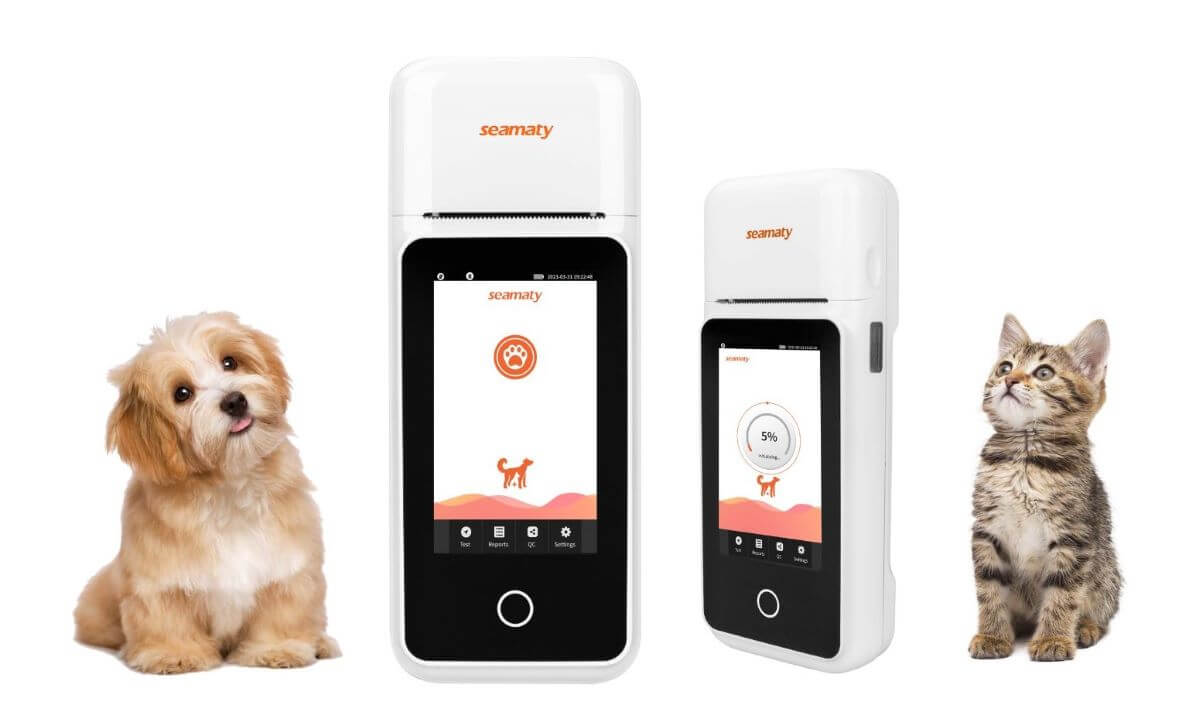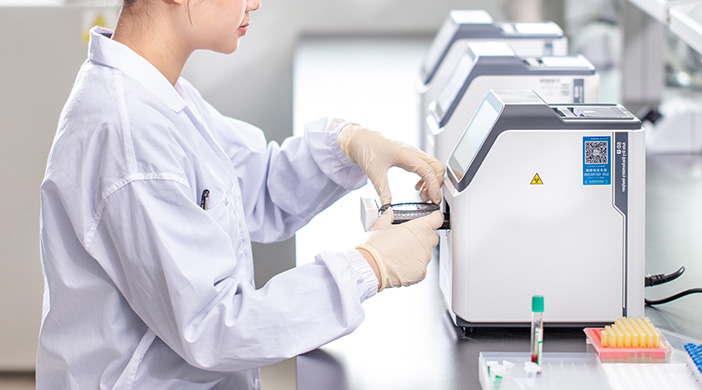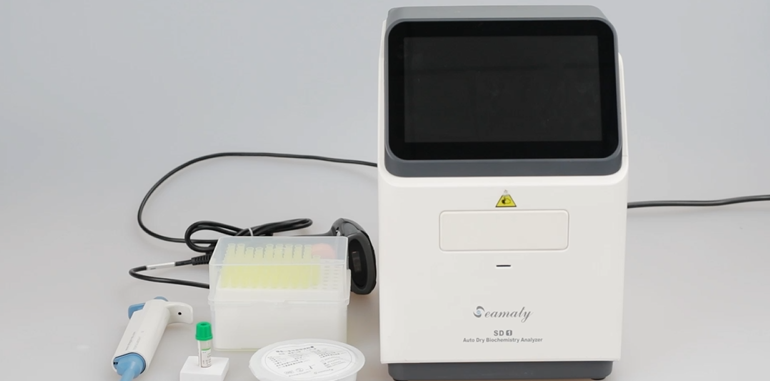release time:2023-11-06 10:47:38
In the world of veterinary medicine, accurate and timely diagnostic tools are paramount to ensure the well-being of our furry companions. Among these tools, blood gas and electrolyte analyzers play a crucial role in understanding and maintaining the health of small animal patients. However, selecting the right analyzer for a small animal hospital can be a daunting task. To make this decision easier, we'll explore the key factors to consider and introduce a game-changing solution, the Seamaty VG1, that meets the unique needs of small animal hospitals.

Why are blood gas and electrolyte tests so important for small animal patients? The answer lies in the intricate balance of these vital parameters in the body. Blood gas analysis provides insights into a patient's acid-base balance, oxygenation, and ventilation, while electrolyte analysis ensures the proper functioning of essential ions like sodium, potassium, and calcium.
Accurate and timely results in these areas can lead to better decision-making by veterinarians, potentially saving lives and optimizing patient care. Therefore, selecting the right blood gas and electrolyte analyzer is not just a matter of choice but a responsibility.
Choosing the right analyzer can be overwhelming, but several factors can help guide your decision:
One outstanding solution that aligns with the unique needs of small animal hospitals is the Seamaty VG1. This handheld veterinary blood gas electrolyte analyzer is a game-changer in the world of animal care. It offers accurate blood gas, electrolyte, and critical care biochemistry results in just a few minutes. But what sets it apart?
The Seamaty VG1 is incredibly user-friendly, allowing you to perform tests in just three simple steps with only 2 or 3 drops of whole blood. It also boasts a multi-parameter card, providing a comprehensive overview of a patient's condition in one go. The ability to get accurate results in just four minutes at the patient's side enables rapid decision-making and optimizes patient care.
One of the standout features of the Seamaty VG1 is its simplicity. The step-by-step guide for performing blood gas and electrolyte analysis using this analyzer makes it accessible to veterinary professionals of all skill levels. With minimal blood samples required, it minimizes the stress on small animal patients and makes the testing process quick and easy.
The significance of quick and accurate results cannot be overstated. The Seamaty VG1 empowers veterinarians to make immediate decisions, ultimately leading to improved patient outcomes.
One of the most significant advantages of the Seamaty VG1 is its handheld portability. Small animal hospitals often need to perform tests at the point of care, whether in the exam room, out in the field, or at the patient's side. The Seamaty VG1's lightweight design and built-in battery allow for flexibility in diagnostics, ensuring that patients receive the care they need wherever they are.
While cost is a significant consideration for small animal hospitals, it's essential to think beyond the initial investment. The Seamaty VG1 proves its cost-effectiveness over time by minimizing the need for expensive consumables and streamlining maintenance costs.
The Seamaty VG1 is designed to seamlessly integrate into the workflow of small animal hospitals. It simplifies data management by allowing for easy integration with the hospital's record-keeping systems. This ensures that all patient data is centralized, leading to more efficient and comprehensive patient care.
In the world of small animal hospitals, choosing the right veterinary blood gas electrolyte analyzer is a crucial decision. Accurate and timely blood gas and electrolyte analysis is essential for the well-being of our animal companions. The Seamaty VG1, with its ease of use, portability, quick results, and cost-effectiveness, is an ideal choice to meet the unique needs of small animal hospitals.
By making an informed decision when selecting analyzers, small animal hospitals can optimize patient care, promote rapid decision-making, and ultimately ensure the best possible outcomes for their animal patients. The Seamaty VG1 is the game-changing tool that makes this vision a reality.
Recommended further reading:
[1]. 5 Reasons Why Seamaty Veterinary Blood Gas Analyzer is a Game Changer for Veterinary Diagnosis
[2]. 3 Tips for Choosing the Right Veterinary Blood Gas and Immune Analyzer
[3]. A Comparative Analysis of Veterinary Blood Gas Analyzers: IDEXX VetStat vs. Seamaty VG2

2022-09-30
Laboratory medicine is the bridge between clinical medicine and basic medicine. Laboratory Diagnostics has many blood testing devices. Here are 6 common blood testing devices.

2022-03-04
This article will analyze the performance of the main parameters of the 800-speed automatic biochemistry analyzer for the current mainstream brands. At present, the mainstream biochemical analyzer manufacturers in the market mainly include Beckman, Hitachi, Toshiba, Roche, Myriad and so on.

2022-02-22
Different manufacturers of various models of biochemistry analyzers use pure water to meet national requirements. The following is the impact of unqualified pure water on the biochemistry analyzer.